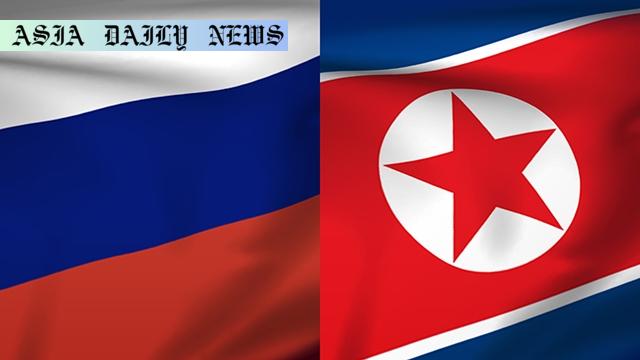Cultural Exchange: Kim Jong Un and Russia’s culture minister discuss deepening bilateral understanding through collaborative arts programs.
Key Point 1: North Korean leader Kim Jong Un met with Russia’s Culture Minister Olga Lyubimova in Pyongyang to discuss cultural ties.
Key Point 2: Cultural exchanges between Russia and North Korea aim to foster mutual understanding and advance relationships in non-military fields.
Key Point 3: The visit aligns with the first anniversary of the comprehensive strategic partnership treaty between the two nations.

Enhancing Cultural Diplomacy Between North Korea and Russia
The recent meeting between North Korean leader Kim Jong Un and Russian Culture Minister Olga Lyubimova in Pyongyang highlights a significant initiative to deepen bilateral understanding through arts and cultural collaboration. Both countries are seeking to promote softer ties in non-military fields, aiming to strengthen interpersonal connections and shared values among their populations.
According to the Rodong Sinmun, the Workers’ Party newspaper, Kim emphasized the influential role cultural and artistic exchanges play in fostering strong bonds of friendship and mutual respect. These exchanges may serve as stepping stones to align cultural histories, showcase artistic talents, and highlight the respective traditions of both nations. As a testament to this ambition, Russian Culture Minister Lyubimova also met with North Korean Culture Minister Sung Jong Gyu to finalize a strategic plan for bolstering government-sanctioned cultural engagement.
The Context Behind the Collaboration
This diplomatic engagement coincides with the one-year anniversary of a landmark strategic partnership treaty between North Korea and Russia, an agreement that primarily emphasizes cooperation in defense and security. Observers note that focusing on the cultural sphere now provides an alternative area for deepening ties while diversifying their relationship. Specifically, this collaboration may lead to joint art exhibitions, film exchanges, and cultural events that celebrate the shared heritage of the two nations.
Importantly, the decision to advance cooperation beyond military domains signals a growing commitment to versatile negotiations. Art and culture frequently act as neutral territories where differences in politics or ideologies are set aside to focus on human expression and celebration of connectivity.
Mutual Benefits from Cultural Collaboration
For North Korea, cultural diplomacy offers an opportunity to showcase its national identity to a broader audience while carefully curating its international image. By collaborating with Russia, they can gain technical expertise and artistic influences that make their programs more impactful. Simultaneously, Russia benefits by demonstrating its soft power capabilities through engagement with a reclusive ally, projecting itself as a cultural bridge-builder despite geopolitical challenges in other regions.
Both nations may also see economic side benefits as cultural activities stimulate industries such as tourism, theater, and film. This partnership provides a platform for each country to strengthen its domestic artistic contributions while amplifying international visibility.
Outlook on Bilateral Artistic Engagement
While the details of the agreements are yet to be fully disclosed, experts anticipate events such as joint festivals, academic workshops, and cultural residencies to emerge from the collaboration. Such activities could also act as precursors for broader exchanges in education or technology. Observers, however, caution that political differences might shadow long-term goals unless transparent policies and inclusive programs take precedence.
Overall, this move to enhance cultural diplomacy sheds light on how arts can foster international dialogue in unique and comprehensive ways. It potentially symbolizes North Korea and Russia’s shared ambition to align their narratives while projecting an image of robust friendship to the global stage.
Commentary
The Soft Power of Cultural Exchange
The announcement of increased cultural collaboration between North Korea and Russia speaks volumes about the power of soft diplomacy in international relations. Culture transcends political boundaries, offering nations a platform to communicate shared values, celebrate diversity, and build bridges that reduce interpersonal tensions.
Kim Jong Un’s emphasis on arts and cultural exchanges reflects a recognition of the unifying potential inherent in shared creative endeavors. By investing in these initiatives, North Korea may be aiming to rebrand itself, showcasing its heritage while seeking greater global integration. Russia, on the other hand, gains an opportunity to reinforce its diplomatic ties during a period of heightened global scrutiny. These bilateral exchanges mark a significant step forward in fostering camaraderie, not just at a governmental level but also among citizens of both countries.
Challenges and Optimism in Artistic Partnerships
However, the practicality and longevity of such collaborations should not be overlooked. Both nations face external criticism for their political actions, which could deter full international cooperation within the cultural spectrum. Furthermore, ensuring equal contributions and genuine exchanges, beyond state propaganda, requires thoughtful planning and transparency. These programs must transcend mere symbolism to effect real mutual appreciation and understanding.
That said, the intersection of art and diplomacy is an area ripe with potential. Joint projects like art festivals or collaborative performances can serve as neutral conduits for storytelling, cultural appreciation, and even innovation.
A Promising Step Forward
In conclusion, the deepening of cultural ties between North Korea and Russia is undeniably a promising development. By venturing into softer diplomatic avenues, both countries stand to cultivate goodwill, foster peace, and celebrate the intrinsic human connection born through shared creativity. It serves as a reminder that, even amidst political complexity, nations can still find common ground in the universality of art and culture.


